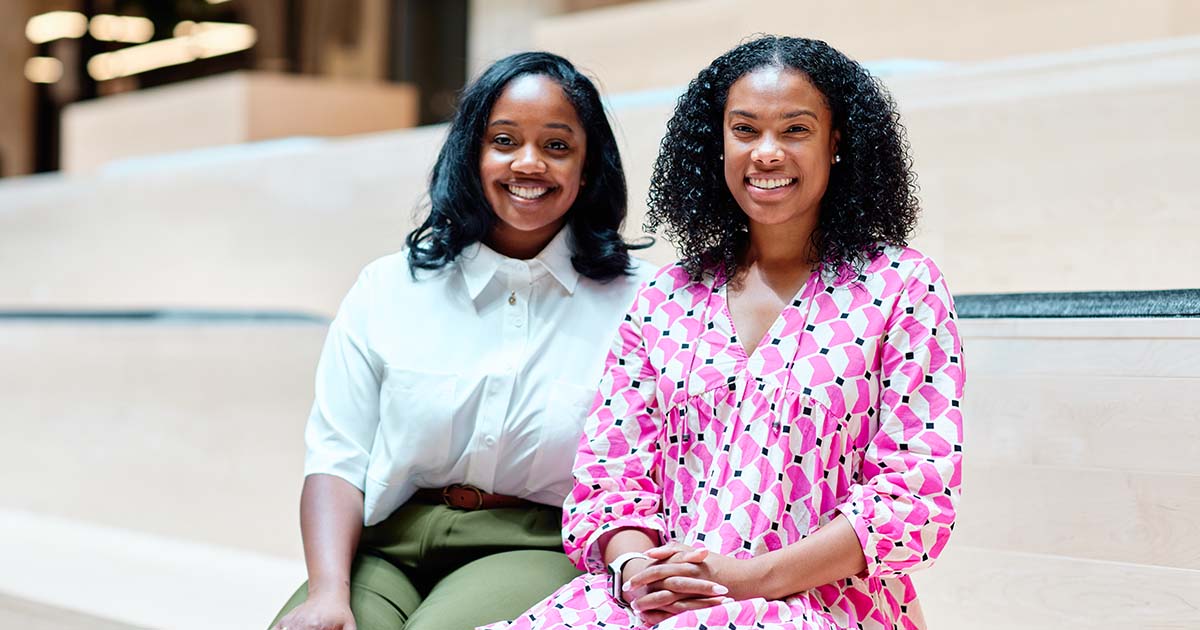Digital Marketing From ‘Next-Generation Creators’
The Origin Story of Clutch

Last Updated: By TRUiC Team
In our gig economy, it can be difficult for startups to find the marketing talent they need at a price they can afford. For their part, freelance marketers sometimes struggle to find suitable clients. Plus, a lot of marketing has gone online, which requires an entirely different strategy – and often a different type of marketer.
Clutch, a digital marketing startup co-founded by Simone May, wants to help match emerging brands with next-generation digital marketers who can take startups’ marketing plans to the next level. This is Clutch’s origin story.
From Campus Concierge to Clutch
The idea for Clutch grew out of a Houston-based company called Concierge that Simone and her co-founder Madison started in August of 2021. Its purpose was to allow university students to provide services to other students in their area. “That concept stemmed from the idea that we wanted students to be able to make money on their own terms,” Simone says.
Unfortunately, the company never really got off the ground. “It was just difficult because a lot of students don't really have a lot of disposable income to spend,” she says. “We essentially realized [that] the student-to-student service idea doesn't work, [so we decided to] try working with businesses.”
This turned out to be a much more viable idea. “A lot of businesses came to us, and the most consistent request we kept getting was, ‘I just need help with my social media. I don't know how to use this, or it's too time-consuming, or I don't know how to keep up.’ And so we just kept getting that request, and we were like, ‘Why don't we just pivot to the concept now that is Clutch, which is connecting creators to small/medium-sized businesses looking for social media marketing support?’ It stuck, and now we're here, and we've made over $150,000 in gross revenue.”
From this experience, Simone learned not to fear failure as a founder but to learn from it. “As an entrepreneur, you're going to fail multiple times,” she says. “Some people call this a failure. We call it a pivot.”
Elevating Young Brands
Clutch is a “digital marketplace that is elevating emerging brands, digital marketing by connecting them with next-gen creators,” Simone says. “We are creating a solution to help all individuals pursue the work they love on their own terms, as well as creating a solution for businesses to find creative talent they're looking for to grow their business to the next level.”
While there are plenty of marketing companies, the co-founders of Clutch saw that many of them weren’t able to meet the needs of 21st-century startups. “We're in a new era where marketing has shifted completely,” Simone says. “I think when I was growing up, marketing was very much so commercial, billboard, magazine centric. It was all everything you could see around you. But now it's shifted to being in this small device that we all know you carry around with your phone. I think through a lot of the other channels, just by social media alone, we started to see a shift in what people are actually interested in seeing.”
She also points out that many younger consumers don’t just want to buy something; they want to believe in the company they’re buying it from. “A lot more of this next generation cares about authenticity behind brands – not just being sold to,” she says. “They don't want to just be sold a water bottle on a commercial, they want somebody to use it. They want to see somebody talk about it. They want to see what the experience is like to use [it].”
Clutch provides small emerging brands access to “next-generation creators who have not only the innate ability to create short-form video content easily, but also they are not as expensive as a marketing agency that might not be as diverse or might not have access to that same generation of talent,” she says.
Clutch strives to support creators as well as the companies that want to hire them. For example, it helps creators determine what to charge, makes sure they get paid, etc. Perhaps most importantly, Clutch makes its money through fees levied on companies, not creators. “[T]hat is very intentional because a lot of creators are also people of color,” she says. “And so we also have a charge as Black women founders to make sure that we're keeping diversity and inclusivity in mind as well, which also ties into being able to authentically talk or speak to a brand via social media.”
‘It’s Okay to Be Frustrated’
As Clutch is currently in beta, Simone says that growth will be the company’s overall emphasis this year. “I think we're ready for the next step in terms of scale,” she says. “So getting us to that next level, out of beta, is our biggest goal for this year. And also figuring out what other channels make the most sense for us to work out of. And expanding that expansion beyond college students is something that we also hope to be able to do as well.”
She advises early-stage entrepreneurs that feelings of frustration and sadness are a normal part of the process. Don’t let them derail your efforts. “It's okay to be frustrated,” she says. “It's okay to be sad. It's okay to feel whatever you're feeling, but just keep going … Whatever your original goal in mind is, whatever was motivating you to start this venture, keep that in mind for the future. Don't let your feelings play a primary role in something that's bigger than you, but also make sure that you acknowledge them and talk about them and understand them, so that way you can move on and keep things moving.”
Tell Us Your Startup Story
Are you a startup founder and want to share your entrepreneurial journey with our readers? Click below to contact us today!





